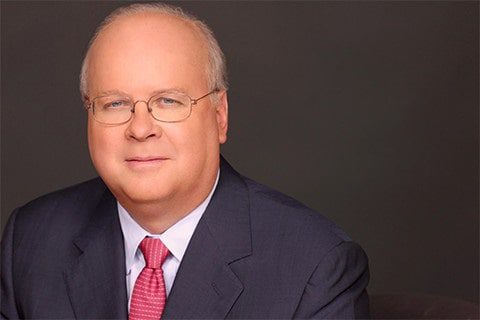
Op-Ed first published in The Wall Street Journal
Opinion
By Karl Rove
My semester teaching at the University of Texas ended as it began, with two fascinating figures, one a Republican and the other a Democrat, talking about politics at its highest level.
On Mondays and Wednesdays for 14 weeks, 50 razor-sharp honors students and government majors met for Government 355M—“Modern American Political Campaign”—and heard via Zoom from real experts.
The semester’s final class Monday featured two students interviewing Ken Mehlman, President George W. Bush’s 2004 campaign manager. Then another pair of students questioned Jim Messina, who led President Barack Obama’s 2012 re-election.
Mr. Mehlman, now a partner at the investment firm KKR, described navigating the campaign’s chaos-filled last three months amid attacks, counterattacks and controversy. Mr. Messina told of the pressure-packed campaign finale—weeks of uncertainty and challenge—and private moments he had with a president to whom he’d devoted all his energy and ability. The students said they found it gripping to hear from two of the handful of living people who’ve managed to win modern presidential campaigns.
Each week, Government 355 covered a topic, on which I lectured and for which there were about 250 pages of required reading. After strenuous preparation, a pair of students then interviewed a guest expert on that week’s subject.
James Carville and Mary Matalin kicked off the semester, talking campaign strategy. The Ragin’ Cajun immediately put his interviewers at ease by asking them to tell him about themselves. The next week, David Axelrod drew on his fascinating experience as journalist, consultant and Obama adviser to cover messaging.
Former Secretary of State James A. Baker III, the only person to direct four presidential campaigns, agreed to half an hour on campaign organization, then let the session run twice as long. Afterward, I told his student interviewers that maybe a dozen people on the planet have had this legendary figure on screen for an hour. Mr. Bush’s media consultant, Mark McKinnon, followed a week later with a tour de force on campaign advertising.
Next, Mr. Obama’s press secretary Robert Gibbs and the journalist Jonathan Swan explored the media’s role in elections. Brenda Gianiny, a gifted Republican pollster, explained survey methodology and polling’s challenges. Sara Fagen, who at 31 became the first female White House political director in 2005 and has since started several successful data analytics companies, and Brad Parscale, President Donald Trump’s digital wizard, explained how social media, microtargeting, and digital advertising are remaking elections.
Joe Pounder, the GOP’s leading opposition-research expert, and Jack Oliver, who at 30 was Mr. Bush’s fundraising chief, split a day on their respective specialties. Maria Cino, the first woman to serve as executive director of either party’s congressional campaign committee, alongside my former principal White House deputy and a longtime aide to Speaker John Boehner, Barry Jackson, tackled primaries and conventions. To discuss presidential debates, Washington superlawyer Robert B. Barnett drew on the decades he’s helped prep Democrats. He was followed by Donna Brazile, Al Gore’s 2000 manager and interim Democratic national chairman, and a brilliant GOP talent, Betsy Ankney, on ground game.
In return, guests received only my thanks and shipments of Salt Lick barbecue and favorite beverages. Mr. Barnett, who eschews beef, got pecan pie.
The class wasn’t only preparing for and watching interviews. Every student wrote every week. In no more than 750 words (believe me, shorter is harder), they had to solve a campaign problem tied to the week’s topic. Instead of a final exam, there’s a 20-page research paper, with a stringent primary-source requirement.
It was hard work—and not only for the students. Fortunately, I had two brilliant teaching assistants, Drayton Cullen and Joseph Ledford; a terrific intern, Olivia Piercy; and my indomitable assistant, Cathy McConnell.
Op-Ed by Mr. Rove courtesy of rove.com.

Karl Rove served as Senior Advisor to President George W. Bush from 2000–2007 and Deputy Chief of Staff from 2004–2007. At the White House he oversaw the Offices of Strategic Initiatives, Political Affairs, Public Liaison, and Intergovernmental Affairs and was Deputy Chief of Staff for Policy, coordinating the White House policy-making process.
Mr. Rove has been described by respected author and columnist Michael Barone in U.S. News & World Report as “…unique…no Presidential appointee has ever had such a strong influence on politics and policy, and none is likely to do so again anytime soon.” Washington Post columnist David Broder has called Mr. Rove a master political strategist whose “game has always been long term…and he plays it with an intensity and attention to detail that few can match.” Fred Barnes, executive editor of The Weekly Standard, has called Mr. Rove “the greatest political mind of his generation and probably of any generation. He knows history, understands the moods of the public, and is a visionary on matters of public policy.”
Before Mr. Rove became known as “The Architect” of President Bush’s 2000 and 2004 campaigns, he was president of Karl Rove + Company, an Austin-based public affairs firm that worked for Republican candidates, non-partisan causes, and non-profit groups. His clients included over 75 Republican U.S. Senate, Congressional, and gubernatorial candidates in 24 states, as well as the Moderate Party of Sweden.

